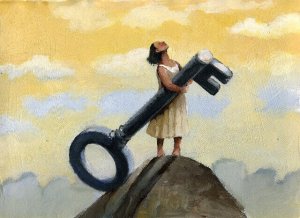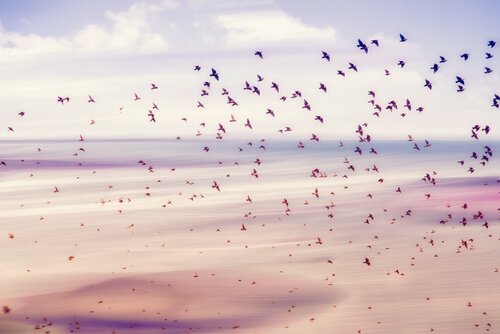Freedom Means Doing Whatever You Want?

Before getting to the debate, we have to mention two key ideas about what freedom means. The first is that no one has absolute freedom in the sense of having the power to disengage completely from societal norms and values. The second idea is related to the fact that freedom doesn’t just entail the choice between one action or another. It extends to thoughts and emotions as well. All of us have some freedom to choose what we think and feel.
We also have to consider the responsibility that is attached to the willingness and ability to choose. In a way, all choice is associated with a prediction of consequences: a cost and benefit analysis. This is where morals and ethics come into play. These morals and ethics are unique to each person, group, society, and humanity as a whole.
If you look at the world, you see that we think everyone has the freedom to make their own choices. If we didn’t, what would be the point of democracy? What reason would there be for the laws and norms that punish the lack of responsibility associated with freedom?
“Freedom is the ability to choose from what is possible. It is the possibility and the right that each person has to choose one of the options that presents itself at a given moment.”
-Jorge Bucay-

Freedom means being autonomous
When you are free, you are responsible for your own decisions. That’s because you are the one who makes them. It gives you a certain degree of autonomy, with all the good and bad that goes along with it. Taking responsibility for your decisions requires courage to be free to choose your path.
This is a cost you try to anticipate and minimize. But at the end of the day, you have to pay it. You assume that your decision comes with some risk and certain consequences. This risk exists because rarely are you the only sculptor of reality. There are many other influencing factors, one being other people.
Being free and thinking for yourself also means that you have to give yourself permission to make mistakes. Not just that, but permission to fail and try again. Here we encounter ideas of responsibility and cost again.
For example, many parents don’t do exactly what they want when they want because they know they have a responsibility to their children.They know that following their desire would come at a price for their family.
Freedom means taking risks. Freedom demands that you bear the weight of your decisions. It isn’t just doing whatever you want at the moment. Instead, it’s about creating a path for yourself. It means deciding where to go and who will come along for the ride. Being free is having the autonomy to decide for yourself.
“Freedom is in being the masters of our own lives.”
-Plato-
My freedom ends where yours begins
Herein lies the most important limit of freedom: the interaction with other freedoms, morals, and ethics. I am free within a limited space. This space is determined by my values and what the law permits. In some areas, these laws will be more strict than my personal values. In others, the opposite will be true and conflict will arise. Liberty and autonomy give us a margin of movement that is less than what our imagination allows.
One value that most human beings share is that of not doing harm. That’s where the famous saying my freedom begins where yours ends comes from. Following this rule is a lesson in and of itself. If you violate it, the law dictates a punishment for he who commits the crime. It is an attempt to provide restitution for the harm that the person caused.
“Freedom is not the absence of commitments, but the ability to choose – and commit myself to – what is best for me.”
-Paulo Coelho-

Finally, to close the article we will highlight a curious phenomenon. Having too many options makes human beings feel overwhelmed. We’ve all felt it. You go to buy a pen, and there are 12 choices. To start with, it’s a choice that you wouldn’t consciously spend time on. Nevertheless, it isn’t uncommon to spend 10 minutes or more deciding which pen to get. And we’d rather spend that time on other things!
That’s how our freedom sometimes ends up “kidnapping” our will, in a way. This huge range of choices can do more harm than good.
Freedom, for all its paradox and goodness, is one of our greatest privileges. There’s no doubt that most of us have a lot of freedom to do and undo things as we wish. We can decide and grow in a way that is simultaneously dependent (because of our social nature) and independent.
Before getting to the debate, we have to mention two key ideas about what freedom means. The first is that no one has absolute freedom in the sense of having the power to disengage completely from societal norms and values. The second idea is related to the fact that freedom doesn’t just entail the choice between one action or another. It extends to thoughts and emotions as well. All of us have some freedom to choose what we think and feel.
We also have to consider the responsibility that is attached to the willingness and ability to choose. In a way, all choice is associated with a prediction of consequences: a cost and benefit analysis. This is where morals and ethics come into play. These morals and ethics are unique to each person, group, society, and humanity as a whole.
If you look at the world, you see that we think everyone has the freedom to make their own choices. If we didn’t, what would be the point of democracy? What reason would there be for the laws and norms that punish the lack of responsibility associated with freedom?
“Freedom is the ability to choose from what is possible. It is the possibility and the right that each person has to choose one of the options that presents itself at a given moment.”
-Jorge Bucay-

Freedom means being autonomous
When you are free, you are responsible for your own decisions. That’s because you are the one who makes them. It gives you a certain degree of autonomy, with all the good and bad that goes along with it. Taking responsibility for your decisions requires courage to be free to choose your path.
This is a cost you try to anticipate and minimize. But at the end of the day, you have to pay it. You assume that your decision comes with some risk and certain consequences. This risk exists because rarely are you the only sculptor of reality. There are many other influencing factors, one being other people.
Being free and thinking for yourself also means that you have to give yourself permission to make mistakes. Not just that, but permission to fail and try again. Here we encounter ideas of responsibility and cost again.
For example, many parents don’t do exactly what they want when they want because they know they have a responsibility to their children.They know that following their desire would come at a price for their family.
Freedom means taking risks. Freedom demands that you bear the weight of your decisions. It isn’t just doing whatever you want at the moment. Instead, it’s about creating a path for yourself. It means deciding where to go and who will come along for the ride. Being free is having the autonomy to decide for yourself.
“Freedom is in being the masters of our own lives.”
-Plato-
My freedom ends where yours begins
Herein lies the most important limit of freedom: the interaction with other freedoms, morals, and ethics. I am free within a limited space. This space is determined by my values and what the law permits. In some areas, these laws will be more strict than my personal values. In others, the opposite will be true and conflict will arise. Liberty and autonomy give us a margin of movement that is less than what our imagination allows.
One value that most human beings share is that of not doing harm. That’s where the famous saying my freedom begins where yours ends comes from. Following this rule is a lesson in and of itself. If you violate it, the law dictates a punishment for he who commits the crime. It is an attempt to provide restitution for the harm that the person caused.
“Freedom is not the absence of commitments, but the ability to choose – and commit myself to – what is best for me.”
-Paulo Coelho-

Finally, to close the article we will highlight a curious phenomenon. Having too many options makes human beings feel overwhelmed. We’ve all felt it. You go to buy a pen, and there are 12 choices. To start with, it’s a choice that you wouldn’t consciously spend time on. Nevertheless, it isn’t uncommon to spend 10 minutes or more deciding which pen to get. And we’d rather spend that time on other things!
That’s how our freedom sometimes ends up “kidnapping” our will, in a way. This huge range of choices can do more harm than good.
Freedom, for all its paradox and goodness, is one of our greatest privileges. There’s no doubt that most of us have a lot of freedom to do and undo things as we wish. We can decide and grow in a way that is simultaneously dependent (because of our social nature) and independent.
This text is provided for informational purposes only and does not replace consultation with a professional. If in doubt, consult your specialist.







